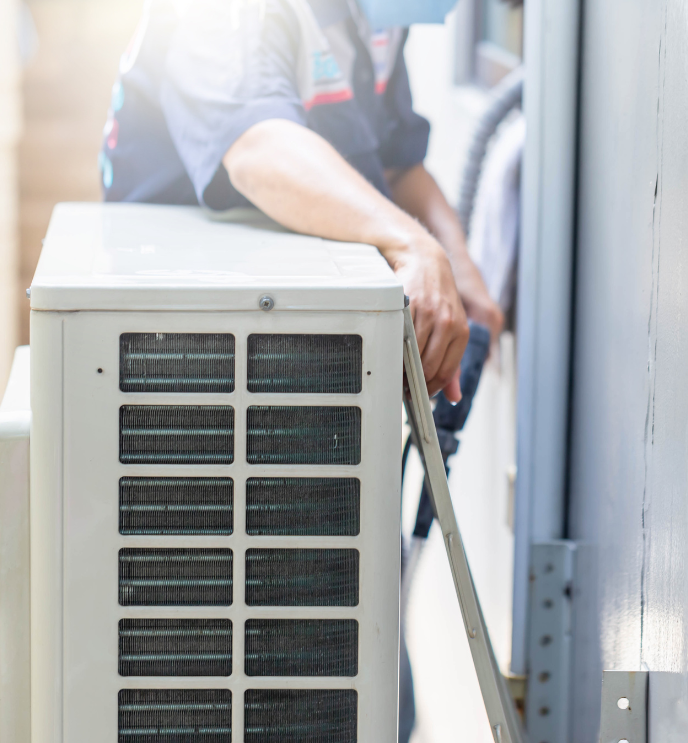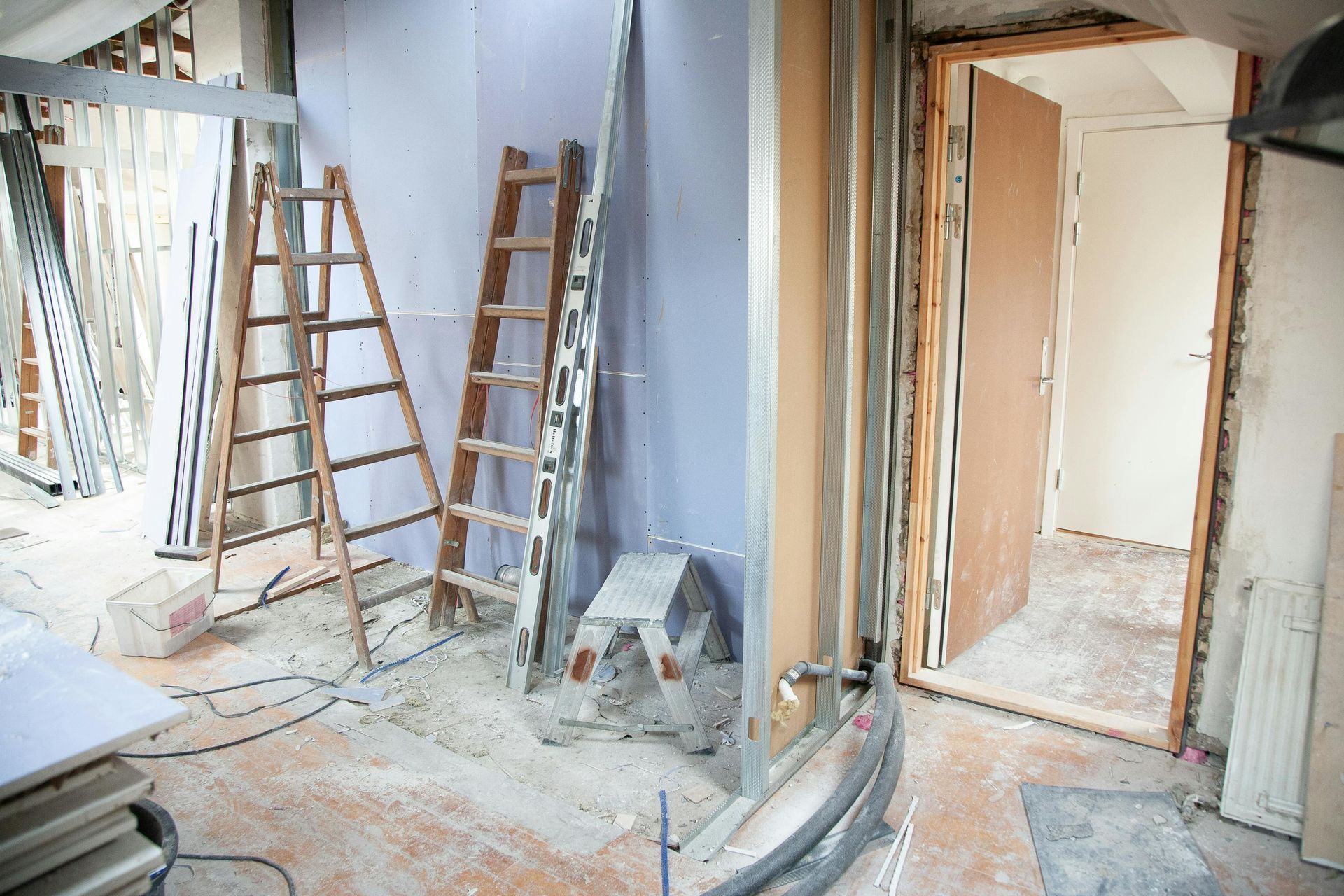Types of Contractors We Serve
Jonathan Behr
Owner of Contractor Insurance Pros by Behr Insurance Services
Index
Contact Us
Phone
Location
Simi Valley, CA 93065
The Woodlands, TX 77382
Katy, TX 77494
As the demand for heating and cooling solutions continues to rise, the role of boiler technicians has become increasingly vital. These skilled professionals ensure that heating systems operate efficiently and safely, but with such responsibilities come inherent risks.
boiler technician insurance serves as a crucial safeguard, protecting technicians from potential liabilities and financial losses. This article delves into the various aspects of boiler technician insurance, including its importance, types of coverage, and tips for choosing the right policy.
The Importance of Boiler Technician Insurance
Boiler technicians face a variety of risks in their line of work, from accidents on the job site to potential damage caused by faulty equipment. Insurance is not just a safety net; it is an essential part of running a successful business in this field.
Risk Management
Every job carries its own set of risks, and for boiler technicians, these can range from physical injuries to equipment failures. Having insurance helps mitigate these risks, ensuring that technicians can focus on their work without the constant worry of financial repercussions from unforeseen incidents. This peace of mind allows for better performance and productivity. Additionally, comprehensive insurance coverage can also include protection against property damage, which is particularly important given the high stakes involved in working with boilers and other heating systems. A single incident could lead to significant repair costs or loss of income, making insurance an invaluable asset.
Legal Protection
In the event of an accident or dispute, boiler technicians can find themselves facing legal challenges. Insurance provides legal representation and coverage for court costs, which can be prohibitively expensive. This aspect of insurance is crucial for protecting a technician's reputation and livelihood. Moreover, many insurance policies also cover claims related to negligence or errors in service, which can further shield technicians from the financial fallout of lawsuits. This legal protection not only safeguards their business but also allows them to operate with greater confidence, knowing they have a support system in place should issues arise.
Client Trust and Credibility
Clients are more likely to hire technicians who are insured. Having boiler technician insurance not only demonstrates professionalism but also builds trust with clients. It assures them that the technician is prepared for any eventuality, which can be a significant selling point in a competitive market. Furthermore, many clients may specifically request proof of insurance before hiring a technician, making it a prerequisite for securing contracts. This not only enhances the technician's credibility but also opens doors to larger projects and collaborations, as businesses and homeowners alike prefer to work with insured professionals who can guarantee quality and safety in their services.
Financial Stability
In addition to the immediate benefits of risk management and legal protection, having insurance contributes to the long-term financial stability of a boiler technician's business. By investing in a solid insurance policy, technicians can protect their assets and ensure that they have the resources to recover from any setbacks. This financial cushion can be particularly important during slow seasons or after unexpected incidents, allowing technicians to maintain their operations without significant disruptions. Furthermore, some insurance providers offer additional services, such as risk assessments and safety training, which can further enhance a technician's operational efficiency and reduce the likelihood of claims.
Industry Standards and Compliance
In many regions, having insurance is not just a good practice; it is often a legal requirement for operating as a boiler technician. Compliance with industry standards not only protects technicians from legal penalties but also ensures that they are adhering to best practices within their field. This compliance can enhance a technician's reputation and lead to more referrals, as satisfied clients are likely to recommend insured professionals to others. Additionally, being part of an insured network can provide technicians with access to resources, training, and networking opportunities that can further their careers and improve their service offerings.

Types of Boiler Technician Insurance
Understanding the various types of insurance available is essential for boiler technicians. Each type of coverage addresses different risks associated with their work.
General Liability Insurance
This is one of the most fundamental types of insurance for any contractor, including boiler technicians. General liability insurance protects against claims of bodily injury, property damage, and personal injury that may occur during the course of work. For instance, if a client trips over equipment left on-site, this insurance can cover medical expenses and legal fees. Additionally, it can also safeguard technicians from claims related to advertising injuries, such as copyright infringement or slander, which can arise from promotional materials or business practices.
Professional Liability Insurance
Also known as errors and omissions insurance, professional liability insurance is crucial for boiler technicians who provide consulting or design services. This coverage protects against claims of negligence, mistakes, or failure to deliver promised services. If a technician's advice leads to a faulty installation, this insurance can help cover the costs associated with rectifying the issue. Furthermore, it can also provide peace of mind for technicians who are engaged in complex projects, where the stakes are higher, and the potential for costly errors is increased. This type of insurance not only protects the technician but also enhances their credibility in the eyes of clients, who may feel more secure knowing that potential risks are mitigated.
Workers' Compensation Insurance
For technicians who employ others, workers' compensation insurance is a legal requirement in many states. This insurance covers medical expenses and lost wages for employees who are injured on the job. It ensures that workers receive the necessary care without placing the financial burden on the employer. In addition to covering injuries, workers' compensation can also provide rehabilitation services for employees who need assistance returning to work. This aspect is particularly important in the physically demanding field of boiler maintenance and installation, where injuries can range from minor strains to more serious incidents. By investing in workers' compensation insurance, technicians not only comply with legal obligations but also foster a safer work environment, which can lead to increased employee morale and productivity.
Factors Influencing Insurance Costs
The cost of boiler technician insurance can vary significantly based on several factors. Understanding these can help technicians make informed decisions when selecting their policies.
Type of Coverage
The type and extent of coverage chosen will greatly influence the premium. More comprehensive policies that cover a wider range of risks will typically cost more. Technicians should assess their specific needs to find a balance between adequate coverage and affordability. For instance, while basic liability coverage may suffice for some, others might require additional protections such as equipment breakdown or professional indemnity insurance, especially if they frequently handle complex systems or high-value installations.
Experience and Training
Insurance providers often consider the experience level of the technician when determining rates. Those with more years in the field or specialized training may qualify for lower premiums due to their reduced risk profile. Investing in additional training can not only enhance skills but also lead to potential savings on insurance costs. Certifications from recognized institutions or participation in ongoing education programs can demonstrate a commitment to professionalism, which insurers often reward with discounts. Furthermore, seasoned technicians may also have a better understanding of risk management practices, further minimizing their likelihood of filing claims.
Location
The geographical area where a technician operates can also impact insurance rates. Regions with higher rates of claims or more stringent regulations may result in higher premiums. Technicians should research local market conditions to understand how location affects their insurance costs. For example, urban areas may present higher risks due to increased competition and a greater volume of clients, which can lead to more frequent claims. Conversely, rural locations might have lower premiums, but technicians should also consider the availability of resources and support in case of emergencies. Additionally, local weather patterns and environmental factors can play a role; areas prone to extreme weather may necessitate more robust coverage, further influencing insurance costs.
How to Choose the Right Insurance Policy
Selecting the right insurance policy is a critical decision for boiler technicians. A well-chosen policy can provide peace of mind and financial security.
Assess Your Needs
Before shopping for insurance, technicians should evaluate their specific risks and needs. Consider factors such as the size of the business, the scope of services offered, and the number of employees. This assessment will help in identifying the types of coverage that are most relevant. Additionally, technicians should think about the equipment they use, as specialized tools and machinery may require specific coverage. For instance, if a technician frequently works with high-pressure boilers, they might need additional liability coverage to protect against potential accidents or equipment failures that could lead to significant financial loss.
Compare Quotes
Obtaining quotes from multiple insurance providers is essential for finding the best deal. Each insurer may offer different coverage options and premium rates, so comparing these can help technicians make an informed choice. Online tools and insurance brokers can simplify this process. It’s also wise to check for customer reviews and ratings of the insurers being considered, as this can provide insight into their claims process and customer service. A company that is responsive and fair in handling claims can make a significant difference in the overall experience of being insured.
Read the Fine Print
Understanding the terms and conditions of an insurance policy is crucial. Technicians should carefully read the fine print to identify exclusions, limitations, and coverage specifics. This diligence can prevent unpleasant surprises when filing a claim. Moreover, it can be beneficial to ask the insurance agent for clarification on any jargon or complex clauses that may be confusing. Knowing exactly what is covered and what is not can help technicians avoid gaps in coverage that could leave them vulnerable in the event of an incident. It’s also advisable to review the policy regularly, especially as the business evolves, to ensure that the coverage remains adequate for changing needs.
The Claims Process
Understanding the claims process is vital for boiler technicians to ensure they can effectively utilize their insurance when needed. Navigating the intricacies of insurance claims can often feel overwhelming, but being well-informed and prepared can significantly ease the burden during stressful situations.
Reporting an Incident
In the event of an accident or damage, technicians should report the incident to their insurance provider as soon as possible. Most insurers have specific timelines for reporting claims, and delays can lead to complications or denials. Providing detailed information and documentation will facilitate a smoother claims process. It is also advisable to familiarize oneself with the specific requirements of the insurance policy, as different providers may have varying protocols for reporting incidents. This knowledge can help technicians avoid common pitfalls and ensure that they are taking the correct steps from the outset.
Documentation and Evidence
Gathering evidence is crucial when filing a claim. This may include photographs of the incident, witness statements, and any relevant documentation such as contracts or invoices. Thorough documentation can strengthen the claim and expedite the resolution process. Additionally, keeping a detailed log of events leading up to the incident can provide context that may be beneficial during the claims assessment. This log should include dates, times, and descriptions of any relevant conversations or actions taken, which can serve as a valuable reference when discussing the claim with the insurer.
Follow-Up
After submitting a claim, it is important to follow up with the insurance company. Regular communication can help ensure that the claim is being processed and that any additional information requested is provided promptly. This proactive approach can lead to a quicker resolution. Technicians should consider setting reminders to check in with their claims adjuster or using a tracking system provided by the insurance company to monitor the status of their claim. Understanding the typical timelines for claims processing can also help manage expectations and reduce anxiety during the waiting period.

Common Misconceptions About Boiler Technician Insurance
There are several misconceptions surrounding boiler technician insurance that can lead to misunderstandings about its necessity and benefits.
It’s Only for Large Companies
Many believe that only large companies need insurance, but this is far from the truth. Small businesses and independent contractors also face significant risks that can lead to financial loss. Insurance is essential for anyone working in the field, regardless of company size. In fact, smaller operations may be even more vulnerable to the impacts of unforeseen incidents, as they often lack the financial cushion that larger corporations possess. A single claim could potentially cripple a small business, making it imperative for technicians to secure adequate coverage to protect their livelihood.
Insurance is Too Expensive
While insurance costs can add up, the potential financial burden of an accident or lawsuit can be far greater. Many insurance providers offer customizable policies that can fit various budgets. Technicians should explore their options and consider insurance as a necessary investment rather than an expense. Additionally, some providers may offer discounts for bundling policies or for maintaining a clean safety record. By taking proactive measures to mitigate risks, technicians can not only lower their premiums but also enhance their professional reputation, making them more attractive to potential clients.
All Policies are the Same
Not all insurance policies are created equal. Coverage options, limits, and exclusions can vary widely among providers. Technicians should take the time to research and compare policies to find one that best meets their specific needs. Furthermore, understanding the nuances of each policy is crucial; for instance, some may cover equipment breakdowns or liability for property damage, while others may not. Technicians should also inquire about additional endorsements that can enhance their coverage, such as protection against cyber threats in an increasingly digital work environment, ensuring they are comprehensively protected against all potential risks associated with their profession.
The Future of Boiler Technician Insurance
As the industry evolves, so too will the insurance needs of boiler technicians. Staying informed about trends and changes in the market is essential for maintaining adequate coverage.
Technological Advancements
With the rise of smart technology and advanced heating systems, boiler technicians may face new risks and challenges. Insurance providers may need to adapt their policies to address these emerging technologies and the associated liabilities. Technicians should stay abreast of these developments to ensure their coverage remains relevant.
Regulatory Changes
Changes in regulations and safety standards can also impact insurance requirements. Boiler technicians must keep informed about local laws and industry standards to ensure compliance and adequate coverage. Regularly reviewing insurance policies in light of regulatory changes is a prudent practice.
Increased Focus on Sustainability
As the industry shifts towards more sustainable practices, boiler technicians may find themselves working with eco-friendly technologies. This shift can lead to new risks and liabilities, necessitating adjustments in insurance coverage. Technicians should consider how sustainability trends may affect their insurance needs in the future.
Conclusion
Boiler technician insurance is not merely a formality; it is a vital component of a successful and responsible business. By understanding the importance of insurance, the types of coverage available, and how to choose the right policy, technicians can protect themselves, their employees, and their clients. As the industry continues to evolve, staying informed about insurance trends and requirements will ensure that boiler technicians are well-equipped to face the challenges ahead.
Areas we serve









